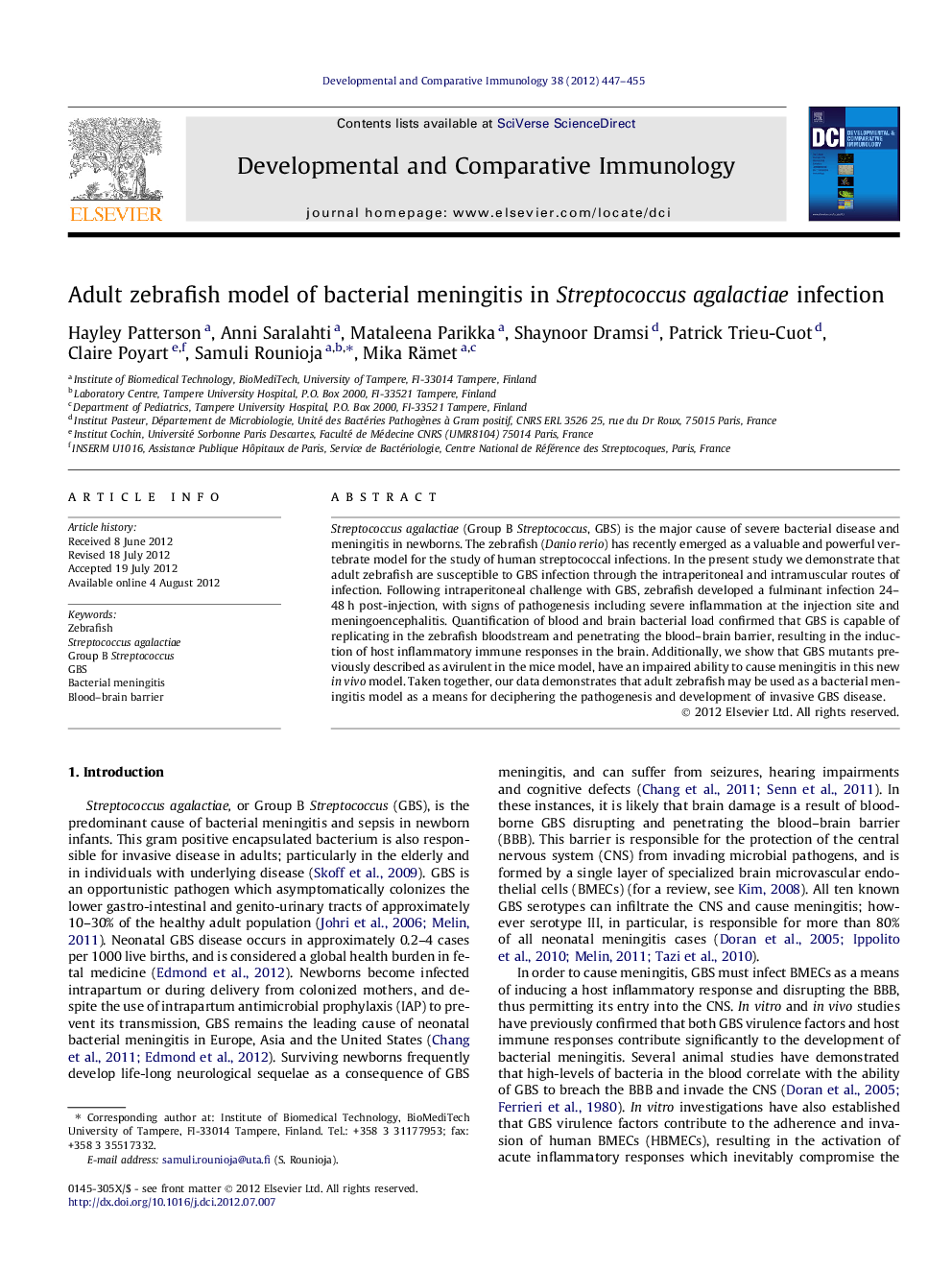| Article ID | Journal | Published Year | Pages | File Type |
|---|---|---|---|---|
| 2429462 | Developmental & Comparative Immunology | 2012 | 9 Pages |
Streptococcus agalactiae (Group B Streptococcus, GBS) is the major cause of severe bacterial disease and meningitis in newborns. The zebrafish (Danio rerio) has recently emerged as a valuable and powerful vertebrate model for the study of human streptococcal infections. In the present study we demonstrate that adult zebrafish are susceptible to GBS infection through the intraperitoneal and intramuscular routes of infection. Following intraperitoneal challenge with GBS, zebrafish developed a fulminant infection 24–48 h post-injection, with signs of pathogenesis including severe inflammation at the injection site and meningoencephalitis. Quantification of blood and brain bacterial load confirmed that GBS is capable of replicating in the zebrafish bloodstream and penetrating the blood–brain barrier, resulting in the induction of host inflammatory immune responses in the brain. Additionally, we show that GBS mutants previously described as avirulent in the mice model, have an impaired ability to cause meningitis in this new in vivo model. Taken together, our data demonstrates that adult zebrafish may be used as a bacterial meningitis model as a means for deciphering the pathogenesis and development of invasive GBS disease.
► Adult zebrafish are susceptible to infection with Streptococcus agalactiae (GBS). ► GBS are capable of replicating in the zebrafish bloodstream and penetrating the blood–brain barrier. ► Mutant GBS strains have an impaired ability to cause meningitis in adult zebrafish. ► Adult zebrafish can be used to study the pathogenesis of invasive GBS disease.
